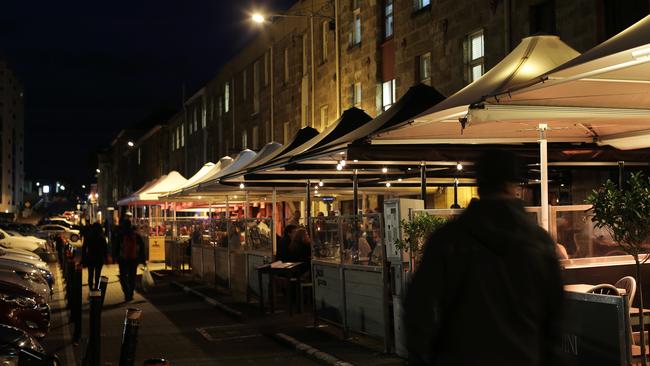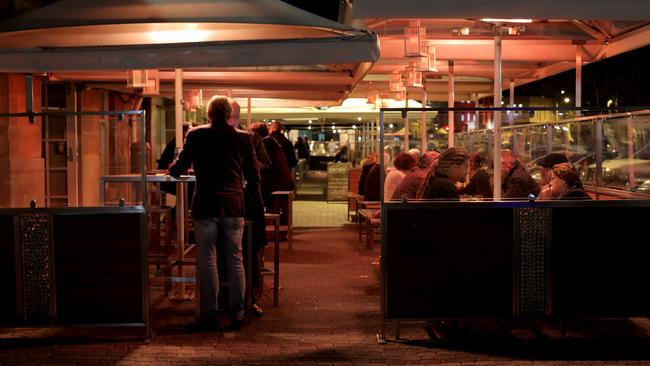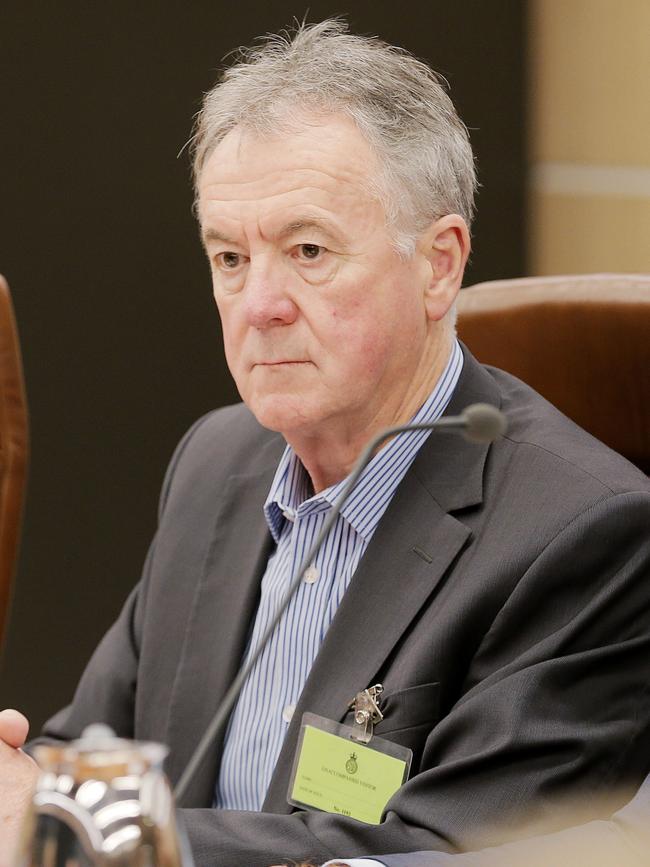Drunks prompt lockout law call, but THA says such action would not work in Tasmania
Late-night precinct stakeholders are investigating whether lockout laws similar to those on the mainland could work in Hobart to curb alcohol-related incidents.

Lifestyle
Don't miss out on the headlines from Lifestyle. Followed categories will be added to My News.
SOME Hobart pubs could have late-night lockout laws similar to those on the mainland attached to their licences.
Hobart City Council documents reveal lockouts were discussed at a recent meeting of police, liquor licensing and council officers – and that the meeting agreed to “gather evidence about any licensed premises that may indicate a need for lockout conditions”.
The State Government on Tuesday night said it had no plans to impose precinct-wide lockouts.
But the documents reveal the “irregular” meeting of the so-called Late Night Precinct Stakeholders group was called after Treasurer Peter Gutwein had received complaints from waterfront tourism operators.
The minutes from the meeting were revealed this week by the Hobart Council’s City Planning Committee. They show concerns were raised specifically about the council’s recent decision to extend the trading hours of three Salamanca establishments: Lower House, Jack Greene and Cargo Bar.
These concerns included noise complaints, congestion caused by taxis and Ubers, and poor behaviour from drunk patrons – including vomiting in the street.
“It was suggested that the use of lockouts from venues after 3am may assist in reducing noise and anti-social behaviour as it would cause the dispersion of people over a couple of hours, rather than large groups leaving venues at the same time,” the minutes reveal.

It was noted that lockout laws in Newcastle, NSW, had been effective in reducing anti-social behaviour.
Lockouts bar patrons from entering venues after a specified time and can also ban alcohol sales after a specified time.
The minutes from the Hobart meeting note one Hobart venue already had lockout laws attached to its licence, as a result of “evidence produced by Tasmania Police and provided to the Liquor Licensing Commissioner”.

“For lockout conditions to be applied to other venues, similar evidence would need to be produced … [and] all parties around the table should take responsibility for the gathering and communication of evidence,” the minutes say.
The meeting then agreed that attendees gather such evidence and provide it to the council’s community safety officer.
It was also revealed that many venues along the waterfront were exceeding their venue capacity, leading to people using the street as a toilet.
Acting Tasmanian Hospitality Association chief executive Greg Astell, who was at the meeting, was surprised lockout laws were raised as a potential solution.
“There is no place in Tasmania for lockout laws,” he said. “We saw what happened with the lockout laws on the mainland.”
Some mainland hospitality precincts blamed lockout laws in recent years for ruining trade.


